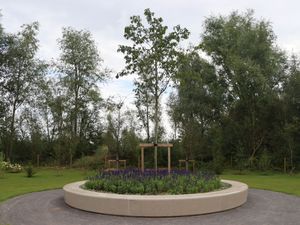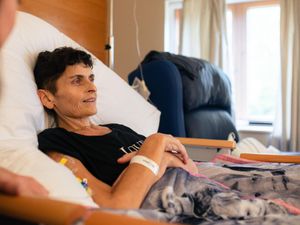New strategy to get Wolverhampton's unfit population to exercise unveiled
A critically important new plan to get Wolverhampton's chronically unfit population to exercise has been drawn up by health professionals.

Data from this year revealed the city's population is one of the most inactive in the country with nearly a third not spending 30 minutes a week exercising.
Wolverhampton Health and Wellbeing Together draft Physical Activity Strategy is being presented to the council's cabinet next Wednesday.
The strategy has four major themes, Active Wulfrunians aims to make everyone physically active every day, Active City to ensure there are activities and infrastructure for residents to keep fit, Active Spaces and Places allow public areas to be used in exercise and Active Systems to ensure organisations work together to help people exercise.
Councillor Jasbir Jaspal, Wolverhampton Council's Cabinet Member for Adults and Wellbeing, said: "Whatever your age, there's strong scientific evidence that being physically active can help you lead a healthier and happier life and reduce your risk of developing major illnesses like coronary heart disease, stroke, type 2 diabetes and cancer.
"Research shows that it can also boost your self-esteem, mood, sleep quality and energy levels, as well as reducing your risk of stress, depression and dementia.
"Being physically active is the miracle cure we've always had available to us, but too many people in our city are not taking their recommended dose – and their health is now suffering as a result.
"We also recognise that being healthy and feeling good is about more than simply not being ill; lots of different factors shape our health and wellbeing – where we live, our education, income, the type of job we do, our lifestyles, access to green spaces, and the connections we have with other people."
She added: "But we can change that. Together, we can create an environment where our residents can live longer, healthier and more active lives, and where every child in the city has the best start in life.
"We will do this by working in partnership with health and social care, the voluntary sector, faith and community groups, businesses, education and delivery partners and by listening to local people, understanding their experiences, and making decisions informed by health data from our local population.
"We will also continue to support those who take part in regular sport and physical activity to carry on doing so, and back our city's wonderful clubs and other organisations who deliver a fantastic range of opportunities for our residents.
"This is an exciting chance for stakeholders to work together to make Wolverhampton a city that helps its residents to get moving more, and to enjoy the many benefits that enjoying an active lifestyle can offer."
To measure the impact of the strategy, levels of inactivity in Wolverhampton will be monitored over time using national, regional and local indicators with an ambition to have physical inactivity levels in line with regional levels by 2030.
Currently children aged between five and 16, 42.5 per cent are less active, completing less than 30 minutes of physical activity a day; this is worse than both the West Midlands average (30.1 per cent) and the national average (30.1 per cent). Inactivity levels are higher amongst women and girls, too.





